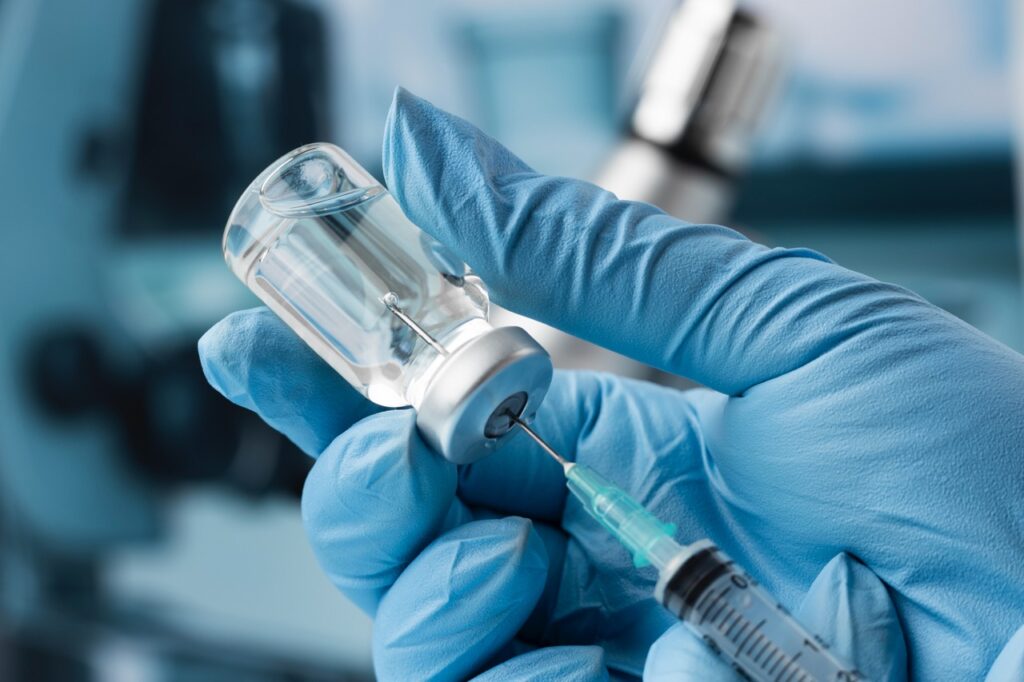Global immunization efforts have saved at least 154 million lives in the past 50 years, the World Health Organization (WHO) has said.
That is the equivalent of six lives saved every minute of every year of the half-century, the UN health agency said on Wednesday.
In a study published in the Lancet, WHO gave a comprehensive analysis of the impact of 14 vaccines under the Expanded Programme on Immunization (EPI), which celebrates its 50th anniversary next month.
Thanks to these vaccines, “a child born today is 40 per cent more likely to see to see their fifth birthday than a child born 50 years ago,” WHO Director-General, Dr Tedros Ghebreyesus said.
Dr Ghebreyesus noted that vaccines are among the most powerful inventions in history, making once-feared diseases preventable.
“Smallpox has been eradicated, polio is on the brink, and with the more recent development of vaccines against diseases like malaria and cervical cancer, we are pushing back the frontiers of disease,” he said.
He noted that with continued research, investment, and collaboration, the world can save millions more lives today and in the next 50 years.
The study
The study shows that immunization is the single greatest contribution of any health intervention to ensuring babies not only see their first birthdays but continue leading healthy lives into adulthood.
Over the past 50 years, vaccines against 14 diseases …diphtheria, Haemophilus influenzae type B, hepatitis B, Japanese encephalitis, measles, meningitis A, pertussis, invasive pneumococcal disease, polio, rotavirus, rubella, tetanus, tuberculosis, and yellow fever… had directly contributed to reducing infant deaths by 40 per cent globally, the study found.
For Africa, the reduction in infant mortality was more than 50 per cent, it said.
Of the vaccines included in the study, the measles vaccination had the most significant impact on reducing infant mortality, accounting for 60 per cent of the lives saved due to immunization.
The measles vaccine will likely remain the top contributor to preventing deaths in the future, according to a joint statement by WHO, the United Nations Children’s Fund, Gavi, the Vaccine Alliance, and the Bill & Melinda Gates Foundation.
The study found that for each life saved through immunization, an average of 66 years of full health were gained – with a total of 10.2 billion full health years gained over the five decades.
As a result of vaccination against polio, more than 20 million people can walk today who would otherwise have been paralysed, and the world is on the verge of eradicating polio, once and for all.
“These gains in childhood survival highlight the importance of protecting immunization progress in every country of the world and accelerating efforts to reach the 67 million children who missed out on one or more vaccines during the pandemic years,” it stated.
The study highlighted that fewer than five per cent of infants globally had access to routine immunization when EPI was launched.
It said 84 per cent of infants are now protected with three doses of the vaccine against diphtheria, tetanus and pertussis – the global marker for immunization coverage.
Remarkable progress
UNICEF Executive Director, Catherine Russell said, due to vaccinations, more children now survive and thrive past their fifth birthday than at any other point in history.
Ms Russel said this massive achievement is a credit to the collective efforts of governments, partners, scientists, healthcare workers, civil society, volunteers, and parents themselves, all pulling in the same direction of keeping children safe from deadly diseases.
“We must build on the momentum and ensure that every child, everywhere, has access to life-saving immunizations,” she said.
The Chief Executive Officer of Gavi, Dr Sania Nishtar said the organization was established to build on the partnership and progress made possible by EPI, intensifying focus on protecting the most vulnerable around the world.
Dr Nishtar said in a little over two decades, “We have seen incredible progress – protecting more than a billion children, helping halve childhood mortality in these countries, and providing billions in economic benefits.”


